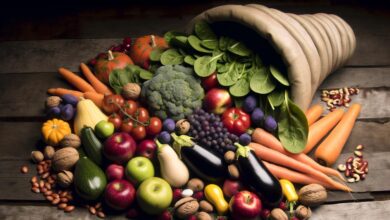Imagine you’re at the starting line, the same place where world-renowned athletes have stood, muscles coiled and minds focused. These titans of sport, whose very bodies are temples of peak physical excellence, are increasingly turning away from traditional diets in favor of a vegan lifestyle. You might wonder how a diet free from animal products fits into the rigorous demands of professional athleticism. It’s not just about personal health; it’s a cultural shift that speaks to a deeper understanding of nutritional science and ethical responsibility. As you explore the reasons behind this trend, you’ll find that the stakes are higher than personal accolades—these athletes are playing a part in a global movement towards sustainability and compassion. The question isn’t just why they’re choosing this path, but what transformative effects this choice might have on their performance and the world at large. So, take your mark as we embark on a journey to uncover the compelling intersection of athleticism and plant-based nutrition, where every bite is as powerful as a sprinter’s stride.
Key Takeaways
- Vegan diets provide essential amino acids for muscle repair and growth, enhancing athletic performance.
- Plant-based diets have anti-inflammatory properties that accelerate recovery time and reduce muscle soreness.
- Vegan diets have a superior nutritional profile, meeting athletes’ protein needs and providing vitamins for bone health and energy production.
- Opting for a vegan diet reflects a commitment to ethical and environmental responsibility, aligning with high-performance and personal values.
Enhanced Athletic Performance
Embracing a vegan diet can significantly boost your athletic performance by providing a rich array of nutrients while reducing health risks associated with meat consumption. You’ll find that plant protein from beans, lentils, nuts, seeds, and soy products not only meets your needs but also supplies essential amino acids vital for muscle repair and growth. This is especially relevant for resistance training, where muscle fibers are constantly being torn and rebuilt.
Your exercise performance hinges on your ability to recover. A plant-based diet, rich in anti-inflammatory compounds, can accelerate this process, reducing recovery time so you can train more effectively. Plus, the arterial flexibility that comes from a diet low in animal fats helps improve blood flow, ensuring your muscles receive the oxygen and nutrients they need during intense workouts.
As you serve your body with a plant-based diet, you’re also serving the planet and its inhabitants. This lifestyle supports sustainable food systems and respects all forms of life. By choosing plant protein sources, you’re not only optimizing your athletic performance but also contributing to a kinder, more compassionate world. Remember, your plate is more than just food; it’s a reflection of your values.
Improved Recovery Times
You’ll often notice a remarkable decrease in muscle soreness and a boost in recovery times when you fuel your body with a vegan diet rich in phytonutrients and antioxidants. These plant compounds have the power to soothe inflammation, paving the way for you to bounce back faster from strenuous physical activity. As a vegan athlete, embracing a variety of plant foods ensures you’re not just meeting, but exceeding your protein needs, which is crucial for muscle repair and overall performance enhancement.
The health benefits of a plant-based diet extend beyond protein. Eating a rainbow of fruits and vegetables supplies an abundance of vitamins, including vitamin D, which supports bone health—a key factor for any athlete. Moreover, the anti-inflammatory properties of plant-based diets contribute to improved recovery times, allowing you to train harder and more frequently.
Adopting a vegan diet isn’t just about personal gains; it’s a commitment to nurturing others and the planet. By choosing plant-based options, you’re serving your body the best possible fuel while also extending compassion to the world around you. Remember, your strength lies not only in your muscles but also in the vitality of your diet.
Nutritional Advantages
As you transition to a vegan diet, you’ll discover its superior nutritional profile, which is essential for maintaining peak athletic performance and avoiding malnutrition or illness. Embracing a plant-based diet can elevate your health, providing a rich array of necessary nutrients while keeping your cholesterol levels in check.
- A vegan diet is a powerful protein source, with a variety of plant-based proteins like beans, lentils, nuts, and seeds, ensuring you get the amount of protein your body needs.
- Plant-based diets are abundant in vitamins, including vitamin B, which is crucial for energy production and maintaining a healthy nervous system.
- The benefits of a plant-based diet extend to heart health due to lower cholesterol levels and reduced risk of heart disease.
- A rich intake of antioxidants from a diverse range of fruits and vegetables can help reduce inflammation and aid in quicker recovery times.
Ethical and Environmental Considerations
Beyond the nutritional benefits of a plant-based diet, your decision to go vegan also reflects a commitment to ethical and environmental responsibility. When you choose to forego animal products, you’re not just fueling your body with plant-based foods; you’re also standing up against animal cruelty. Icons like Venus Williams and Tom Brady have shown that going vegan aligns with high-performance and personal values, inspiring you to serve your health and the greater good simultaneously.
This lifestyle minimizes your carbon footprint and conserves vital resources. As you’re aware, meat consumption is a leading contributor to greenhouse gas emissions. By replacing animal products with vegan alternatives, you actively combat climate change. Additionally, your choice helps in preserving water—a crucial resource often depleted in animal agriculture.
Your ethical and environmental considerations go hand in hand with a desire for a healthier planet. Athletes, including the strongman Patrik Baboumian, prove that endurance sports and strength thrive on a vegan diet, while also promoting sustainability. They’ve broken the stereotype that meat is necessary for peak physical condition, highlighting how a plant-based diet reduces the risk of heart disease and honors our shared environment.
Success Stories and Testimonials
Athletes’ testimonials spotlight the transformative impact a vegan diet has on performance and well-being, with many reporting enhanced energy and reduced recovery times. When you hear personal experiences directly from the pros, it’s hard not to take notice. They’re not just eating differently; they’re thriving, redefining what it means to build muscle and maintain peak condition on a plant-based regimen.
Consider these success stories:
- Andre Patton, an NFL wide receiver, credits his vegan diet with a surge in vitality. He’s always “ready to go,” a testament to the sustained energy that plant-based eating can provide.
- Venus Williams, who graces tennis courts with legendary prowess, turned to vegan diets to alleviate fatigue and soothe her joint pain, allowing for graceful longevity in her sport.
- Patrick Baboumian, once named the world’s strongest man, has felt his recovery time shrink and his blood pressure drop since adopting a vegan lifestyle.
- Research from Harvard Medical School reinforces these testimonials, indicating that vegan diets help reduce heart-damaging inflammation.
As you aspire to serve others and contribute positively to the world, let these athletes’ stories inspire you. Their plant-based journeys echo a powerful message: you can feel better and perform at your best while honoring a compassionate, healthful way of living.
Frequently Asked Questions
Why Is a Vegan Diet Good for Athletes?
You’ll find a vegan diet boosts your plant-based performance, enhances recovery speed, and ramps up nutrient density. It’s kinder to your heart, eases digestion, and helps manage weight—all while fueling ethically and safeguarding our planet.
Why Do People Choose a Vegan Diet?
You might choose a vegan diet for its health benefits, ethical considerations, and positive environmental impact. It’s also great for weight management, disease prevention, and may boost your energy and digestive ease.
What Are the Main Reasons Why a Person Follows a Vegan Diet?
You might choose a vegan diet for ethical considerations, health benefits, or weight management. It’s easier on digestion, reduces allergies, boosts energy, prevents disease, aligns with longevity research, and respects cultural influences.
Why Do Athletes Not Eat Meat?
Imagine fueling your muscles with plant proteins, boosting recovery, and managing weight. Athletes ditch meat for ethical reasons, animal rights, and the environment, finding energy surges and digestive ease in a compassionate, performance-enhancing diet.







